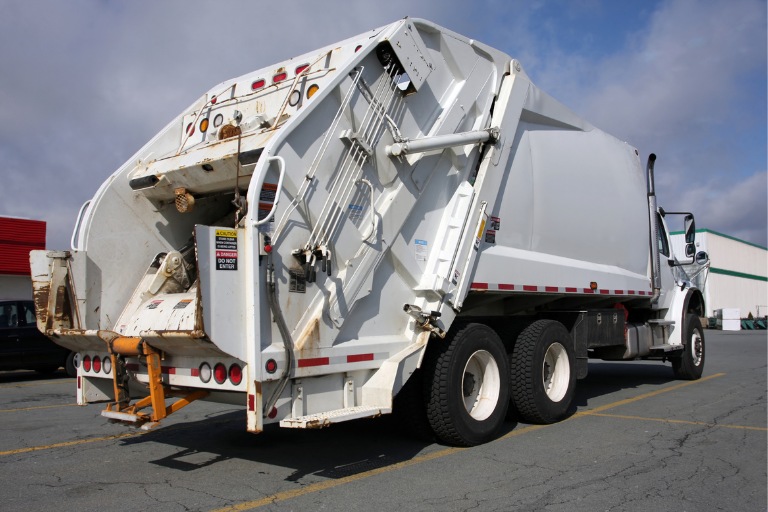Blog
Boosting Productivity with a Connected Waste Management Solution
by Joel Scott • July 15, 2024

Boosting Productivity with a Connected Waste Management Solution
Productivity is a challenge for businesses and governments alike. With rising costs and difficulties in recruiting and retaining staff, it’s imperative that high-performing organizations find ways to help their staff be more productive.
Increasing efficiency and productivity is a primary reason for introducing new waste management technology. Most waste and environmental service companies have digital transformation programs. But in many cases, the implementation of disparate solutions has increased complexity for staff, limiting productivity gains due to the steps required to move information from one system to another, hindering efficiency by adding steps for those responsible for these systems.
Consider a recent Mulesoft report, which surveyed executives across various industries and found that organizations use over 990 digital applications on average, with only 28% of those waste management apps being integrated or connected.
According to the report, “integration remains a top priority for implementing a digital transformation strategy while new technologies emerge and create further challenges.”
Integration requires a waste management solution capable of combining all the separate parts of the business into a singular platform, and until now, that’s been a significant gap in most businesses. With the introduction of Routeware Elements, that gap is now filled.
Let’s explore some of the current ways that the waste management industry is lagging in terms of technology and see how Elements bridges these gaps.
Problems with Existing Waste Management Software
In the waste and recycling industry, we see this issue clearly. Over the last few years, organizations have adopted a variety of solutions including billing and customer management solutions, on-board computers, live video cameras, sensors, route optimization, customer portals, resident web tools and smartphone apps, compliance software, and more.
Our 1,400 waste industry customers consistently tell us that they want faster, easier-to-use waste management solutions and technology that simplifies the workday for their people, and a platform that unifies these functions into a singular software for ease of use.
Three priorities come up repeatedly, both in municipal organizations and private waste haulers:
-
Getting drivers home safely
Operators want to minimize driver interaction with technology while still collecting real-time service information.
-
Making it easier for busy employees to do a good job
Operators want technology to automate tasks and allow employees to complete high-quality work quickly. They want happy, productive staff who want to stay with the organization.
-
Keeping waste management customers satisfied
Operators want to deliver a reliable, cost-effective service backed by great communication to reduce call volume, customer dissatisfaction, and cancellations.
One of the key challenges our clients consistently mention is the lack of integration between waste management solutions. When staff have to switch waste management apps to complete processes and manually transfer data between systems, it is a huge drain on efficiency and productivity.
The Benefits of Connected Waste Management Solutions
By connecting components effectively within an integrated waste management solution, operators can deliver a range of business benefits:
-
Easier to use waste management apps
Logging in and out of multiple systems with different interfaces and data structures is frustrating and confusing for staff. It can turn even simple tasks into time-consuming chores. By integrating software modules and joining data and processes, employees will complete their work more efficiently and maintain a consistently high standard.
-
Increased productivity
Disconnected systems force individuals to spend excessive time switching between waste management apps, often leading to different staff unknowingly working on the same task. By connecting workflows across your solutions, teams gain greater visibility into where they are needed and how they can be more productive.
-
Joined-up data and analysis
The introduction of new technology on trucks and at the yard has caused an explosion in the data available to waste operators. However, to use this information to drive service improvement, organizations need a single source of truth that everyone can trust. This is achievable only when key business data is in compatible formats and can flow seamlessly between modules.
-
Better customer service
There’s nothing more frustrating to customers than having to repeat conversations with different members of your team because they are using different systems. If a customer reports an issue on your smartphone app, they expect you to know that when they call. A truly integrated waste management solution should support the entire customer journey, from first contact to the delivery of service at the curbside.
-
Simplified decision-making
The most successful organizations have become good at using data to inform business strategy. From pricing and resourcing, to training, coaching, and customer outreach, they make decisions based on thorough analysis. Data-driven decision-making relies on trusted, easily accessible information, which is much simpler to extract from connected data sources.
-
Improved employee satisfaction
With recruitment and retention of staff being an issue across the waste industry, it’s critical that high-performance organizations keep their staff happy. Connected systems prevent teams from wasting their time on system issues, help employees feel good about the service they provide to customers, and empower staff to work more autonomously.
-
Increased waste management app security
In addition to increasing efficiency and productivity, a connected waste management solution increases system security and lowers risk. By minimizing the number of systems staff log into, you reduce the risk of unauthorized access. Integrated systems also address common data risks associated with manual data entry and file sharing.
Learn more about how Routeware Elements helps waste operators increase efficiency and safety, lower costs and complaints, and empower customers to engage digitally with waste management apps.
Contact us to get started with a waste management solution.